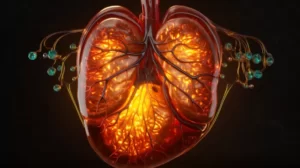If you’re among the 90 million Americans dealing with fatty liver issues, you’re probably aware of the potential health risks. Excess fat in the liver can lead to severe complications, including the need for a liver transplant. Fortunately, a particular supplement might offer some assistance. Researchers in Spain have found that taking probiotics can slow the accumulation of fat in the liver and help ease liver issues, particularly in overweight individuals.
Understanding Fatty Liver Disease
The accumulation of fat in the liver is called steatosis, which represents the beginning of non-alcoholic fatty liver disease (NAFLD). With the growing number of obese individuals globally, NAFLD is becoming increasingly prominent.
NAFLD encompasses a range of conditions that stem from the accumulation of fats in liver cells. In its early stages, NAFLD doesn’t usually cause severe harm, but it requires attention to prevent its progression. As the build-up of fats in the liver continues, it can result in non-alcoholic steatohepatitis (NASH), liver inflammation, cirrhosis, liver failure, and even liver cancer.
Several factors contribute to the development of NAFLD, including obesity, high sugar consumption, insulin resistance, and metabolic syndrome. Lifestyle changes, such as a healthy diet and regular exercise, play a crucial role in preventing and managing NAFLD.
How Probiotics Can Help
Scientists at the University of Granada discovered that probiotics could effectively slow the accumulation of fat in the liver. Probiotics are live bacteria and yeasts beneficial for your health, particularly your digestive system, and are naturally found in certain fermented foods and supplements.
The research not only demonstrated the benefits of probiotics in reducing the build-up of fats in the liver but also showed that these friendly bacteria can help reduce harmful inflammation. According to the researchers, “This new finding went hand in hand with lower values in proinflammatory molecules.”
It’s essential to note that while probiotics can be beneficial, they alone can’t cure NAFLD. The researchers recommend using probiotics as part of a comprehensive treatment plan that also includes lifestyle changes and other therapies.
Choosing the Right Probiotic
With numerous probiotic supplements available on the market, it can be challenging to find the right one to support your liver health. When selecting a probiotic supplement, consider the following factors:
- Strain Diversity: A probiotic that includes multiple strains of bacteria is generally more beneficial than one with only a single strain. This diversity can help ensure that the supplement benefits a wider range of health issues.
- Colony-Forming Units (CFUs): Probiotics are measured in CFUs, which indicate the number of live bacteria in each dose. A higher CFU count may offer more significant health benefits, but it’s essential to follow the recommended dosage instructions on the product label.
- Quality: Look for reputable and trustworthy brands that produce high-quality, well-researched products. Many manufacturers are now using a third-party testing agency to verify their products, which can provide added assurance of quality.
- Storage Requirements: Some probiotics require refrigeration to maintain the live bacteria’s potency, while others can be stored at room temperature. Be sure to follow the storage instructions on the product label.
Incorporating Probiotics Into Your Diet
Besides supplements, there are various ways to include probiotics in your diet naturally. Some common sources of probiotics include yogurt, kefir, kimchi, sauerkraut, miso, tempeh, and kombucha.
Keep in mind that probiotic food sources and supplements are not a one-size-fits-all solution to liver health, and individual tolerance to different strains of bacteria may vary. Therefore, it’s essential to consult with your healthcare provider before starting any new supplement regimen or making significant dietary changes.
Prevention and Treatment of NAFLD
While probiotics can indeed complement the treatment and management of NAFLD, they alone won’t reverse the disease. The best approach to tackling NAFLD is adopting a holistic plan focusing on diet, exercise, stress management, and other lifestyle adaptations.
To support liver health and prevent or improve NAFLD, consider the following steps:
- Eat a well-balanced, nutrient-dense diet rich in fruits, vegetables, lean proteins, and whole grains.
- Limit high-sugar, high-fat, and processed foods.
- Engage in regular physical activity, aiming for at least 150 minutes per week.
- Maintain a healthy weight, and if necessary, work towards reaching a comfortable weight for your body.
- Manage stress and practice self-care to promote overall well-being.
By incorporating probiotics and making intentional lifestyle changes, you could support and improve your liver health, prevent complications, and effectively manage NAFLD.



![8 Simple Rules to Refresh Your Body with a Healthy Cleanse [See Pictures]](https://naturalhealthreserve.com/wp-content/uploads/2024/01/8-rules-healthy-cleanse-slideshow-300x168.webp)